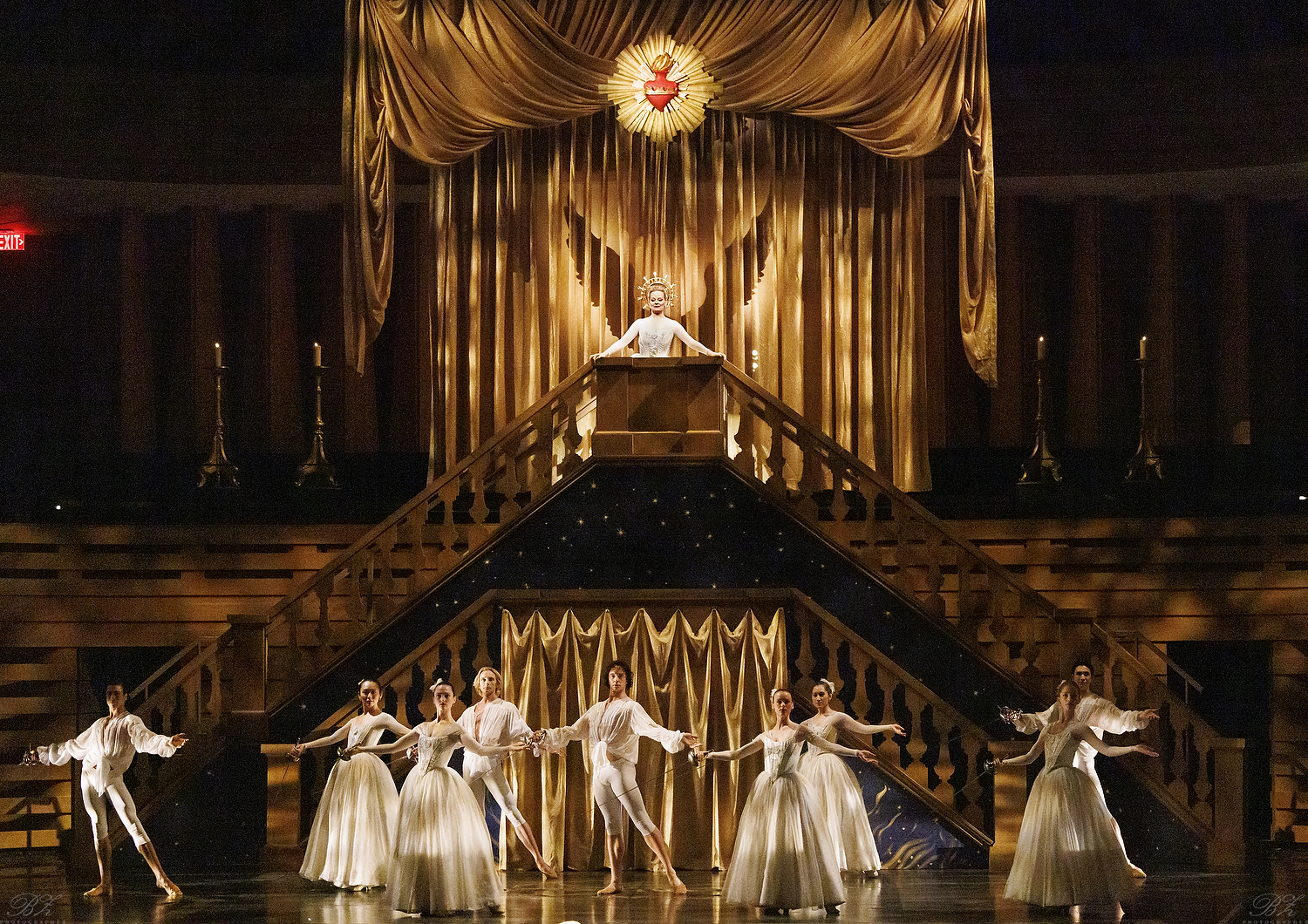Amid much stirring of excitement surrounding Opera Atelier’s groundbreaking Pelléas et Mélisande scheduled to premiere in mid-April of this year, Co-Artistic Directors Marshall Pynkoski and Jeannette Lajeunesse Zingg recently announced the company’s upcoming mainstage offerings for 2026/27.
Entitled A Season of Heroes, Marc Antoine Charpentier’s swirling chamber opera, The Descent of Orpheus (October 22-25, 2026), is partnered with George Frideric Handel’s The Resurrection (April 15-18, 2027), an intense, formative early work by the nimble German-born master of English baroque Italian music theatre.
Breaking with earlier operatic treatments of the Orpheus myth, Charpentier hurls us directly into the centre of grief with the sudden horrific death of Orphée’s precious wife, Eurydice. Frantically journeying to the Underworld in a desperate attempt to rescue her, the once gentle, divinely favoured shepherd, soon rises to the stature of hero, filling the subterranean darkness with brave, heartfelt song.
Originally sung by no less a celebrated haute-contre than Charpentier himself, The Descent of Orpheus, uncompleted at the time of his death, features music of exquisite refinement and great emotional depth in the best French traditions of the late 17th century.
American guest artist, tenor Daniel McGrew, will sing the title role. Frequently featured Opera Atelier principal soprano Mireille Asselin will appear as Eurydice. Bass baritone David Witczak portrays the robust infernal ruler, Pluto. Mezzo-soprano Mireille Lebel will sing Persephone.
Longtime OA repetiteur and gifted composer/arranger, Christopher Bagan, leads the Tafelmusik Baroque Orchestra and Chamber Choir in his inaugural Koerner Hall appearance as conductor.
First scheduled to debut live in April 2020, reimagined as a streaming on-demand 2021 digital presentation at the height of the pandemic, restaged by Pynkoski with full audience in attendance in 2023, The Ressurection (Revived) relates the impassioned fundamentals of the central Christian narrative — crucifixion, entombment, restoration to eternal life — in distinctly personal terms. A shattered trio of mourners, Mary Magdalene, the lesser-heralded Mary of Cleophas and St. John the Evangelist, gather for mutual support, Handel, ever the practiced showman, deftly introducing a second, markedly more profane theme. A strutting, bombastic Lucifer does verbal battle with a shining Angel of God, adding an earthy, even comedic element to issues of heavenly salvation.
A battalion of advancing angelic Artists of Atelier Ballet armed with slashing swords is, however, no laughing matter as choreographer Lajeunesse Zingg makes strikingly apparent.
The strong, actorly musical cast includes sopranos Carla Huhtanen as The Archangel, Meghan Lindsay as Mary Magdalene and mezzo Mireille Lebel as Mary Cleophas. Tenor Antonin Rondepierre will appear as St. John. Bass baritone David Witczak will sing the deliciously wicked role of Lucifer.
Maestro David Fallis conducts a sprawling, lavish 24-player Baroque ensemble drawn from the ranks of Tafelmusik.
“I’m fascinated by this world in which the individual experiences spiritual ecstasy through a ravishing of the senses,” Pynkoski remarks.
Single tickets for The Descent of Orpheus will be available for sale August 25, 2026. Single seat sales for The Resurrection, also slated for performance at Koerner Hall, commence February 23, 2027.



